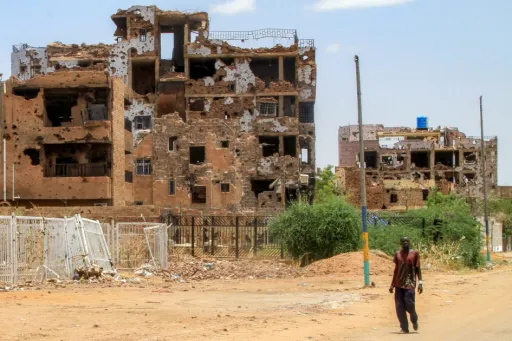American forces have started pulling out of two bases in Afghanistan, a US official said on Tuesday, the day peace talks and a prisoner swap between Kabul and the Taliban were due to start despite widespread violence and a political crisis.
Troops have started leaving one base in Lashkar Gah, the capital of Helmand province in the south, and another base in Herat in the west, a US official told AFP news agency on condition of anonymity.
Omar Zwak, the spokesman for Helmand's governor, told AFP that "20 to 30" foreigners had left Lashkar Gah since the weekend.
US-Taliban deal
The United States is keen to end its longest-ever conflict, and under the terms of a deal signed in Doha last month has said all foreign forces will quit Afghanistan within 14 months provided the Taliban stick to their security commitments.
Under the accord, the US is initially supposed to cut its troop presence from about 12,000 currently to 8,600 by mid-July, and close five of its roughly 20 bases across the country.
Even with the drawdown, US forces retain "all the military means and authorities to accomplish our objectives," Colonel Sonny Leggett, spokesman for US Forces-Afghanistan, said on Monday, referring to American counterterrorism operations and support for Afghan forces.
Helmand, considered a Taliban stronghold like neighbouring Kandahar province, is where US and British forces fought some of the bloodiest campaigns of the 18-year war.
The initial drawdown comes as the Taliban, which sees itself as having achieved "victory" over America, test the Pentagon's resolve to protect local partners by conducting dozens of low-level attacks against Afghan forces.
The US has only responded to a few of these attacks.
Kabul chaos
Under the terms of the withdrawal deal, the Taliban are supposed to tackle militants such as Daesh group and Al Qaeda, as well as hold talks with the Afghan government that were due to start on Tuesday.
But Kabul is in disarray and appears unable to present a unified front to negotiate with the Taliban.
On Monday, President Ashraf Ghani was inaugurated for a second term following an election that was marred by fraud allegations while his rival, former chief executive Abdullah Abdullah, also declared himself winner and swore himself in as premier in a parallel ceremony.
Washington has denounced Abdullah's self-inauguration, urging unity in Kabul ahead of negotiations with the Taliban.
"Prioritising an inclusive government and unified Afghanistan is paramount for the future of the country and particularly for the cause of peace," Secretary of State Mike Pompeo said on Monday.
Taliban sends buses to fetch prisoners
Peace talks were supposed to start on Tuesday but have been thrown into limbo by a dispute over the release of Taliban prisoners — something the insurgents have demanded as a prerequisite ahead of negotiations, but which Ghani has so far refused to do.
Ghani was expected later Tuesday to announce a decree on the issue and reveal details of the negotiating team.
Meanwhile, the Taliban has sent vehicles to be ready to collect fighters expected to be released by the Afghan government in a prisoner exchange and said they will honour the deal by handing over 1,000 government troops.
Sediq Sediqqi, a spokesman for President Ashraf Ghani, said on Twitter that the presidential palace would issue a decree with details of the process, and the release was contingent on security and peace developments.
"The Afghan government has reached a framework based on which the release of prisoners will be in exchange for a significant reduction in the level of violence," he said.
A senior Taliban leader in Doha, the group's political headquarters, said vehicles had been sent to an area near Bagram prison, north of the capital Kabul, to fetch the freed fighters.
"After our conversation with Zalmay Khalilzad (the US special envoy for Afghanistan) on Monday, in which he conveyed to us the release of our 5,000 prisoners, we sent vehicles to pick them up," he said.
A government source said any release was unlikely in the coming days and could be weeks away.
It was unclear whether prisoners would be released from other prisons aside from Bagram, a detention facility located next to a US military base.
A Taliban spokesman, Suhail Shaheen, said in a Tweet that his group had handed a detailed list of all 5,000 prisoners to the United States and was waiting for all to be released.
"It will be acceptable only when they are handed over to us in a desert or in detention centers under the observation of our prison officials," he said.
The US embassy declined to comment. A spokesman for NATO's mission referred questions to the Afghan government.
Red Crescent to get govt prisoners
Abdul Shukoor Qudoosi, governor of Bagram district, said his office had reports of an unusual arrival of multiple buses in the area, but they could not confirm what the buses were for or whether they were connected to the release.
The Taliban leader in Doha also confirmed the group had finalised arrangements for the release of 1,000 prisoners held by them, adding that they had shifted all prisoners to safe locations in Afghanistan.
"We are planning to release the 1,000 prisoners of the Afghan government to the Red Crescent and they could then send them to their hometowns or pay them cash for travelling home," he said.























